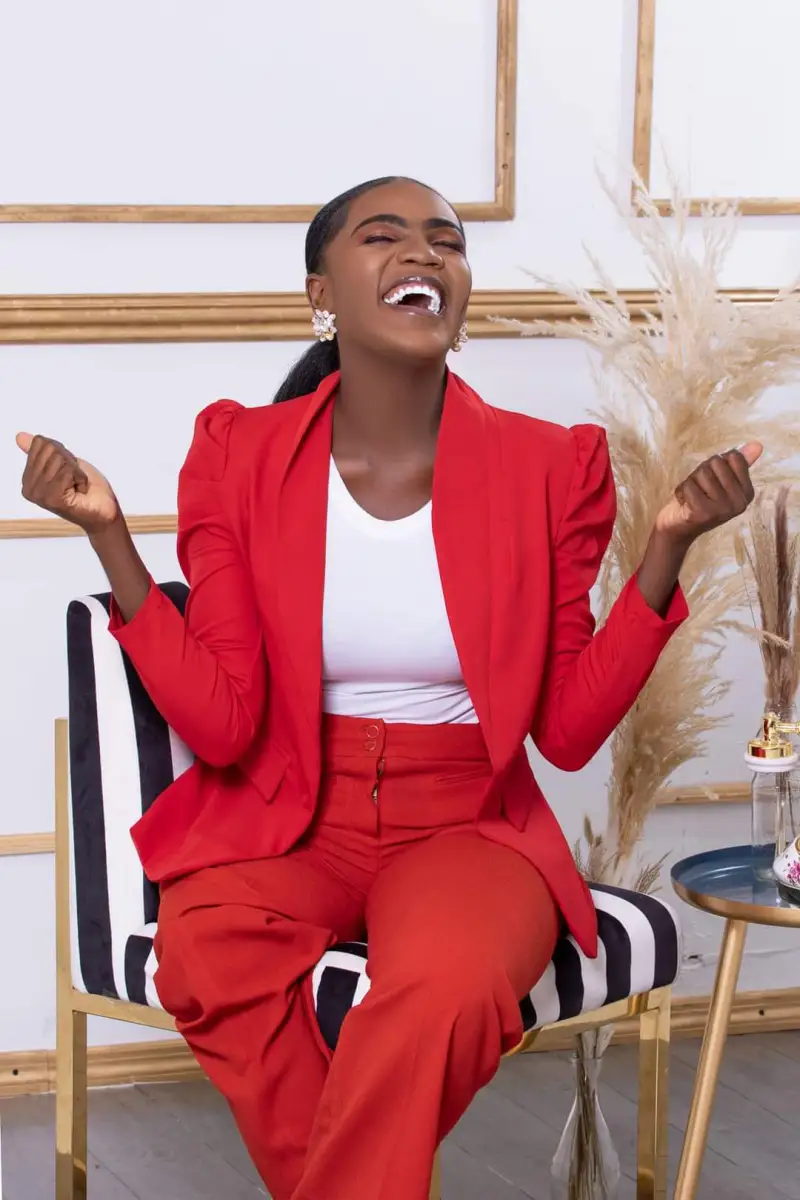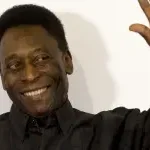There is no such thing as a disabled person, if the appropriate means allow anyone living with a disability to lead a good life. It is with this sentence repeated over and over again that Eugenie Pierre, on a Sunday in the fall of 2022 in Delmas, allowed us access to her world. Born with a foot disability, the thirty-year-old remains convinced that her story and that of so many other people in her category can lead the authorities and various actors of the civil society to act in order not to handicap people living with a disability.
Widespread insecurity, high living costs, kidnapping and political crisis shape the daily life of every Haitian today. The incessant actions of gangs continue to trample on the inalienable rights of people. Most economic activities are at a standstill. Bandits in the metropolitan area kill and burn corpses without being really worried. The start of the school year for the 2022-2023 academic year is now taking place at a slow pace. Faced with this macabre picture, it was somewhat difficult to go to Eugenie Pierre’s home in Vivy Mitchell and the surrounding areas, which have been known in recent days to be prey to the actions of armed gangs, in order to conduct an interview. We therefore decided to make an appointment on a Sunday morning at the Church of God in Delmas 19, of which she has been a member for several years, to discover and understand a little better her life, her childhood, her youth, her dreams, in relation to the social barriers, to the trials that, she says, have made her see all the colors.
From childhood to youth, Perception as a social barrier
Red bodice, black skirt, red heels, Eugenie Pierre, Sr Euge, as she likes to be called, willingly agreed to give us an interview. Invited to talk about her childhood in relation to her physical disability, before tying the knot with her braids, her face appears a little frozen. When I was a child, in my neighborhood, they took pleasure in calling me “Bout Zèl” only because I had one foot shorter than the other. The story goes that I became like that three days after my birth. You could say that I was born with this disability… If it wasn’t for my supportive family environment, I wouldn’t have been able to cope, and the social barriers are still tight in many ways. It is in these terms that Eugenie Pierre tells us about her childhood, with regret in her voice. But she rejoices in the fact that she is a Christian. God has always been at her side, she likes to tell us.
Scorn, rejection and humiliation. None of this has stopped her from achieving her dreams. Indeed, she was able to complete her classical and university studies against all odds, having been mocked and taunted by the neighborhood and by misunderstanding classmates. However, Eugenie sings
It is, so to say, in his opinion, that it is up to the society to allow anyone, no matter his handicap (physical, intellectual, sensory), to live in the respect of his freedom and dignity.
Lawlessness as a social handicap
According to the principles governing human rights, people living with a disability or an impairment must enjoy the same rights as everyone else. All human beings are born with equal rights, as stated in Article 1 of the Universal Declaration of Human Rights. The very fact that people are born or live with a disability does not in any way diminish their humanity. Moreover, articles 5 to 30 of the Convention on the Rights of Persons with Disabilities (CRDPH) set out a series of specific rights and oblige States to guarantee Equality, Security, Employment, Accessibility to this category of people in society.
In this regard, Eugenie Pierre is unequivocal. “Many people believe that disability automatically means inability. But that is unthinkable,” she says. The fact of being able to see, walk, write, hear or understand in a different way is, on the contrary, a sign of consideration for each person in a society marked by plurality. And the authorities have the obligation to allow people with disabilities to enjoy their rights, as required by conventions and laws, argues Eugenie.
It is in this respect, with regard to the handicap or the disability, that a certain number of specific rights are destined to a category of people in society, in order to allow them to concretely enjoy these rights and to compensate for the inequality of which they are the object because of their handicap. In fact, for Eugenie, no person is disabled if the adequate social means to live manage to neutralize the deficiency that he/she is facing. It is this mental attitude that has allowed her to pass all the stages established by society until today, she says.
It is in this respect, with regard to the handicap or the deficiency, that a certain number of specific rights are destined to a category of people in the society, in order to allow them to concretely enjoy these rights and to compensate the inequality of which they are the object because of their handicap. In fact, for Eugenie, no person is disabled if the adequate social means to live manage to neutralize the deficiency that he/she is facing. It is this mindset that has allowed her to go through all the stages established by society until today, she says.
When the environment that is not accessible to any person is rather the disability
Without appearing as preferential or pity treatments, or even any insufficiency of human rights, to repeat Professor Eric Delassus, on the contrary, specific rights, such as those of people living with a disability, only express the need to do everything possible so that everyone whatever their degree of fragility, dependence or vulnerability, can be recognized in their dignity by enjoying all their rights, in the respect of their freedom and in the equality as required by the Conventions relating to human rights, in particular of the so-called disabled people.
But, there is not only that, as clearly shown by the 7th edition of the festival “Quinzaine internationale Handicap et Culture” which was held from 1 to 15 October 2022 in Port-au-Prince, Gonaives and Lascahobas, around the theme “Art in mental health to develop” at the initiative of the International Organization of the Francophonie (OIF) and local organizations.
Indeed, Eugenie, despite her different ability to walk, is a jack of all trades. She is president of the Youth Association of her church. She is a singer, animator, and a thirst for the stage and work. As an ambassador for the Secretary of State for the Integration of People with Disabilities (BSEIPH), she does a little more and only sometimes rests.
Where do we stand with disability in Haiti?
In a shadow report on the implementation of the Convention on the Rights of Persons with Disabilities by the Office de la Protection du Citoyen et de la Citoyenne (OPC), submitted to the Committee on the Rights of Persons with Disabilities for the initial review of the Haitian government the OPC welcomed the creation of the Office of the Secretary of State for the Integration of Persons with Disabilities (BSEIPH) in May 2007, the existence since 1983, currently dysfunctional, of the National Council for the Rehabilitation of Persons with Disabilities (CONARHAN), and the Inter-Ministerial Committee for Human Rights, by presidential decree on April 26, 2013. In addition, despite its 14 chapters and 85 articles, the law on the integration of people with disabilities has limitations because of a low budget allocated, without which some activities cannot be carried out, regrets the OPC.
With all this in mind, Eugenie calls for what she calls another way of looking at disability in Haiti. If the means are there and the accessibility that goes with it, then the disability is neutralized, and people are not disabled. They can then be useful to society, as I am, without frankly wanting to be proud of it, she quickly points out. “If I accept myself as I am, with my disability, and am able to live and work for the benefit of society, am I a person with a disability?
Accessibility, Accessibility, Accessibility, the cry of a specialist
However, in addition to being marginalized and stigmatized, one of the biggest burdens for people living with disabilities is the lack of accessibility, laments Eugenie, an ambassador for the BSEIPH.
And rightly so, Fenel Bellegarde, who also lives with a physical disability, is a specialist in Accessibility, Disability and Accompaniment. According to him, when we talk about accessibility, we see a chain of movement, which is to get from point A to B and stated by the letters APCU. They translate into Reach, Penetrate, Circulate, and Use.
Co-founder of the Haitian Institute of Sign Language, Fenel Bellegarde continues that:
To Reach, is to be able to leave one’s home (a disabled person in a wheelchair, blind, deaf, must be able to leave his or her home to Reach an office or a building.
To penetrate, When the person arrives at the building, it is necessary that it is able to penetrate there. That is to say, are the corridors well regulated, is there an access ramp, are there elevators, etc.
To circulate, it is necessary that it is able to circulate in the space. To go to the cafeteria, to the secretary, to the bathroom, etc. And finally, to use, it is when the person must be able to use the equipment and materials available in the space. To be able to use them, these materials should be accessible. Is the height of the table adapted for a person in a wheelchair, is the information adapted for a blind person etc.?
In other words, concludes the social communicator, there are different types of accessibility: to the built environment, to information, to social services and to contents.
On the one hand, if we take into account the ratification in 2008 of the Inter-American Convention for the Elimination of all forms of Discrimination against Persons with Disabilities ; then the ratification in 2009 of the Convention on the Rights of Persons with Disabilities (CRDPH), and on the other hand, at the national level, the creation in 2007 of the Office of the Secretary of State for the Integration of Persons with Disabilities (BSEIPH), until the enactment in 2012 of the Law on the Integration of Persons with Disabilities (LIPH), it is clear that there is no shortage of laws.
The Office of the Secretary of State for the Integration of People with Disabilities has been sounding the alarm on the difficulties faced by people with disabilities across the country, in an increasingly difficult socio-economic context: including limited access to health care, problems of accessibility to services, public buildings and public transport, the education system does not take into account disabilities globally, reluctance to integrate people among others.
With all this in mind, if these difficulties are not addressed within the framework of a clear and specific public policy, accompanied by concrete actions and the awareness that goes with it, it follows that the people we are talking about are not disabled. On the contrary, it is society that handicaps them.
The amputation of the players of the Haitian national soccer team of amputees did not prevent them from making a whole people dream in October 2022, nor the fact that Michel Péan is blind or that Maurice Sixto, a famous Haitian professor of literature, storyteller and humorist, born in May 1919, became blind in 1969, that is to say 50 years after his birth.
Eugenie Pierre’s life, like so many other people living with at least one disability, being able to brave all the steps with the necessary material conditions, illustrates that a reduced mobility or a disability does not alter anyone’s life. In other words, there are no disabled people, but rather there are people who are disabled by society.
END.
Eric Delassus. Human rights and specific rights: Children’s rights, rights of the elderly, rights of the disabled. 2012. Hal-00753224.
Office of Citizen Protection (OPC), Alternative report on the implementation of the convention on the rights of persons with disabilities, January 2018.
Integration of Persons with Disabilities Act (IPDA)
Convention on the Rights of Persons with Disabilities (CRDPH)









